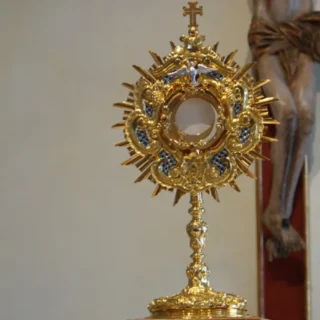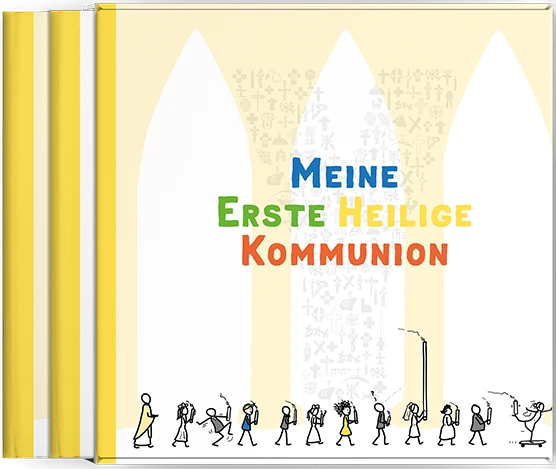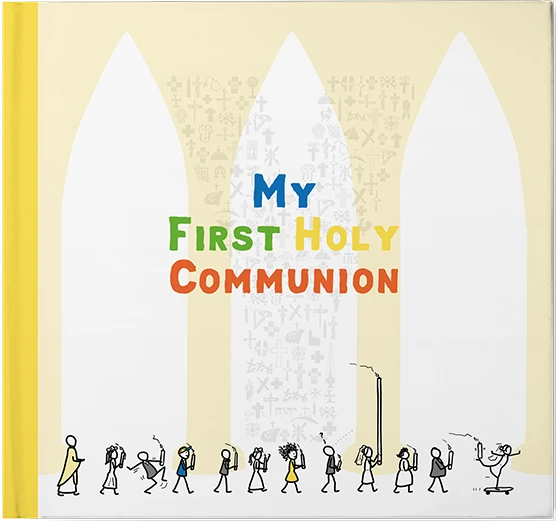

Credopedia
Birthday of the Church
Without Pentecost, the Incarnation of Christ would hardly make sense.
Birthday of the Church
Without Pentecost, the Incarnation of Christ would hardly make sense. The sending of the Holy Spirit, which marks the birthday of the Church, reveals the very reason for salvation: God wants to gather all humanity into a single-family by pouring out his Spirit upon it. The Church has been God’s plan for humanity since before the foundation of creation (cf. Ephesians 1). From all origins, God’s desire, and plan has been to create a family.
To understand Pentecost, one must look at the first chapter of the Book of Genesis. If you know a bit about ancient near Eastern texts, you will see that Genesis 1 is written in the language of a temple building text. That is, creation is described as God building a gigantic temple as large as the entire cosmos and into which man was placed as a priest (cf. Gen 1,26-27). To be a priest means to be the mediator between God and the cosmos. It says that God created animals, plants, and all kinds of living things, but only man was created in the image (literally, statue) of God, and as such he was the mediator between God and creation. Genesis 2, although written in a different time and literary form, is based on a similar theology. Creation is understood here as the building of a temple, and only man is breathed into God’s spirit of life (cf. Gen 2,7).
Everyone knows what happened then: in this temple of creation, through sin, the intimate relationship between man and God was broken (cf. Gen 3). God withdrew from the garden. Man and woman became enemies to each other. Brothers became enemies to one another. Nations became enemies to one another. This accumulation of sins came to an end in the building of the Tower of Babel, through which all peoples finally spoke in different languages and no longer understood each other (cf. Gen 3-11).
At that moment, God began his work of redemption by choosing Abraham with the promise: “All the communities of the earth shall find blessing in you.” (Gen 12,3). Abraham, and thus, Judaism, are chosen for all – an election is always for all! Here, God began to prepare with Israel that which ultimately found its conclusion in Jesus, namely the establishment of his family. God promised Abraham and his descendants a land in which he would again dwell with Israel. The fulfillment of this promise in the gift of the Promised Land, with the Temple at its center, symbolized the restoration of Paradise.
To do this, he made a covenant with the people of Israel at Mount Sinai. As is well known, God came down to his people on the mountain in a thunderstorm with thunder and fire and as if in a theophany (ancient Greek θεός theos “God”; φαίνεσθαι phainestha “to show himself”; literally means “appearance of a god,” meaning the manifestation of God in the human world or nature). This event was so shocking that the people did not even dare to touch the foot of the mountain because that would have meant death. So there God made the covenant with Israel and had the Tent of Revelation built. Thus, for the first time since the Fall, God again took up residence in the heart of His people (cf. Exodus 19-24) and marched with them to the Promised Land (Numbers-Deuteronomy). There, Solomon later built him a temple and God again dwelt in the heart of his people (1 Kings 8).
But what happened next? The kings of Israel sinned and so everything broke again (1 Kings 8-2 Kings 25). The Jews understood: Everything that is happening is only a foreshadowing of what is to come. God decided to take upon His own body that which permanently prevented His project of dwelling among men again, namely sin (1 Peter 2,24). This is what is celebrated on Easter: Jesus took the sin of the world upon himself on Good Friday, died for us on the cross, took that sin with him to death, and then rose again on the third day. In this way, he created the world anew.
After that, he went up to heaven from the Mount of Olives – ten days before Pentecost – saying beforehand, “And (behold) I am sending the promise of my Father upon you; but stay in the city until you are clothed with power from on high.” (Lk 24,49) According to tradition, the Upper Room is where the disciples then waited for nine days for the coming of this power from on high. On the day of Pentecost, the disciples were gathered there with 120 people. This symbolic number (120=12×10) represents the people of Israel (12) in communion with the fullness of the nations (10 symbolizes this fullness). In this community, the Church understands clearly: the family of God made up of all the peoples of the earth. When they were all gathered, Jesus sent from the Father the Holy Spirit. This came as with tongues of fire, settling one on each of them (cf. Acts 2,1-4).
At Mount Sinai, God had come in a thunderstorm and no one could touch the mountain. He had taken up residence only in the tent of revelation. But here he takes up his abode in the heart of every man, and what Jesus says in the Gospel is fulfilled: “Jesus answered and said to him, “Whoever loves me will keep my word, and my Father will love him, and we will come to him and make our dwelling with him”. And before that, “And I will ask the Father, and he will give you another Advocate to be with you always,” (John 14,23; 14,16; Gospel Pentecost Sunday, reading year C). Jesus says here, in a sense, “The Holy Spirit will make you the temple of God. From the day of Pentecost, everyone who keeps my commandments will become the temple of God, and we, the Trinity, the Father, the Son, and the Holy Spirit, the eternal God who created humanity and the universe, will take up residence in your hearts.” That’s Pentecost!
That is why Paul says later in Romans, “If the Spirit of the one who raised Jesus from the dead dwells in you, the one who raised Christ from the dead will give life to your mortal bodies also, through his Spirit that dwells in you.” (Rom. 8,11; 2nd reading Pentecost Sunday, reading year C). In other words, from the moment we received the Holy Spirit in Baptism, and especially in Confirmation, and with every sacrament we receive, etc., we receive more and more of the Holy Spirit, and our mortal bodies are transformed more and more into life-giving Spirit. And in this Spirit, we now cry out, “Abba, Father!” It is only because the Holy Spirit, who is God Himself, dwells in us that we can truly and really say to God, “Abba, Father!” And this is what we celebrate at Pentecost! Because we are born anew, as children of God and as the family of God.
God’s mission to the Church is to take this message of Jesus dying for our sins and Jesus’ resurrection to the whole world, so that, all people may receive the Good News that Jesus died for them out of love, that their sins are forgiven, that they are promised the Holy Spirit, and that they are called to become children of God, and to live forever.

YOUCAT Digital
Discover our digital products, which will help you to grow in faith and become missionaries yourself.







